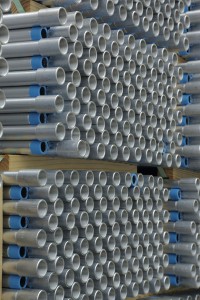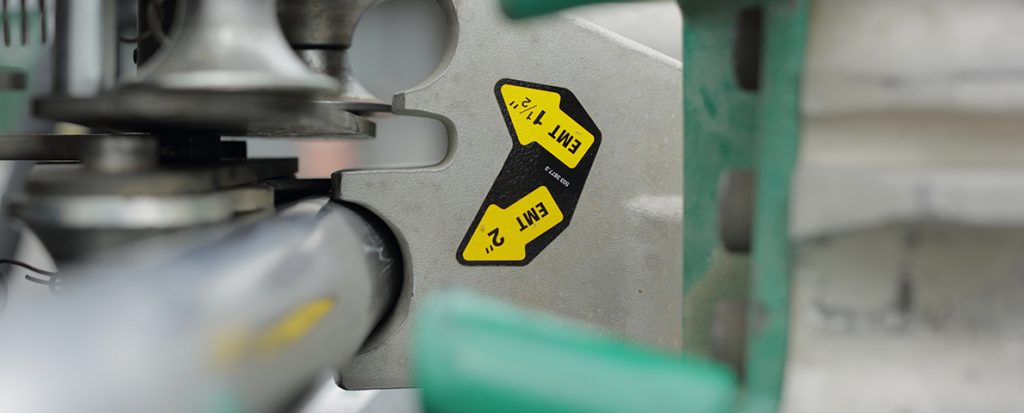When it comes to electrical conduit, PVC vs. metal is a major consideration. The experts with American Conduit can let you know why aluminum will always be the better choice. We have a vast supply of conduit in stock at any time – a million pounds, in fact – and more than 20 stocking facilities throughout the country. You can always turn to American Conduit, because we’ll provide you a product that will exceed your expectations, and we’ll get it to you quickly.
Comparing PVC with Metal Conduit
 Most people associate PVC (polyvinyl chloride) with plumbing pipes instead of electrical conduit. Actually, PVC conduit is pretty close to PVC plumbing. In order to bend PVC conduit, you need to heat the glue that joins the different pieces together. If you have to install conduit in a moist application, such as underground, PVC is watertight. PVC does a good job of standing up to salt water, chemicals and other substances that can corrode steel conduit, and it’s also lightweight and strong.
Most people associate PVC (polyvinyl chloride) with plumbing pipes instead of electrical conduit. Actually, PVC conduit is pretty close to PVC plumbing. In order to bend PVC conduit, you need to heat the glue that joins the different pieces together. If you have to install conduit in a moist application, such as underground, PVC is watertight. PVC does a good job of standing up to salt water, chemicals and other substances that can corrode steel conduit, and it’s also lightweight and strong.
While there are a lot of benefits to using PVC, there are also drawbacks. One of the biggest is that PVC doesn’t contain metal. As a result, you’ll have to install a grounding conductor when laying PVC conduit. Also, PVC doesn’t do that great of a job withstanding very hot or very cold conditions. If you have a volatile environment, you definitely can’t use PVC. When PVC melts or burns, it produces toxic fumes.
Instead of PVC, you should instead consider using aluminum electrical metallic tubing (EMT) for your conduit needs. It’s just as lightweight as PVC, and can also be used in moist, damp environments – as long as you make sure the fasteners and fittings are resistant to corrosion. EMT is typically designed to be use indoors, but can, in some instances, be used outside. Talk to an American Conduit representative and we’ll let you know if EMT will be a good fit for your specific application.
There are other reasons to use aluminum EMT instead of PVC. The most important reason involves safety. You’ll never have to worry about installing aluminum conduit, because, unlike PVC, it won’t emit toxic fumes if exposed to a volatile environment.
Aluminum is Also Better Than Steel
Not only is aluminum conduit superior to PVC, it’s also a better choice than steel. Here are some of the many reasons why.
- Aluminum won’t allow electromagnetic interference (EMI) to damage sensitive equipment. The wiring that runs inside conduit can sometimes produce EMI, but aluminum keeps that from happening
- Aluminum is a lot lighter than steel – it’s about 30 percent lighter. As a result, it will be less expensive, not only to purchase but also to ship if the need ever arises. You’ll also save on labor costs. Since a 10-foot portion of aluminum conduit weighs less than 40 pounds, one person could perform the installation easily. You’d need to assign two workers to install the same length of steel, because it weighs about 100 pounds.
- You’ll never have to worry about aluminum corroding, unlike steel, which degrades unless it has a special – and expensive – coating of zinc.
For companies choosing electrical conduit, PVC vs. metal can be a complicated decision. American Conduit will make that choice easy. Call 1-800-334-6825 or contact us online to learn more.

